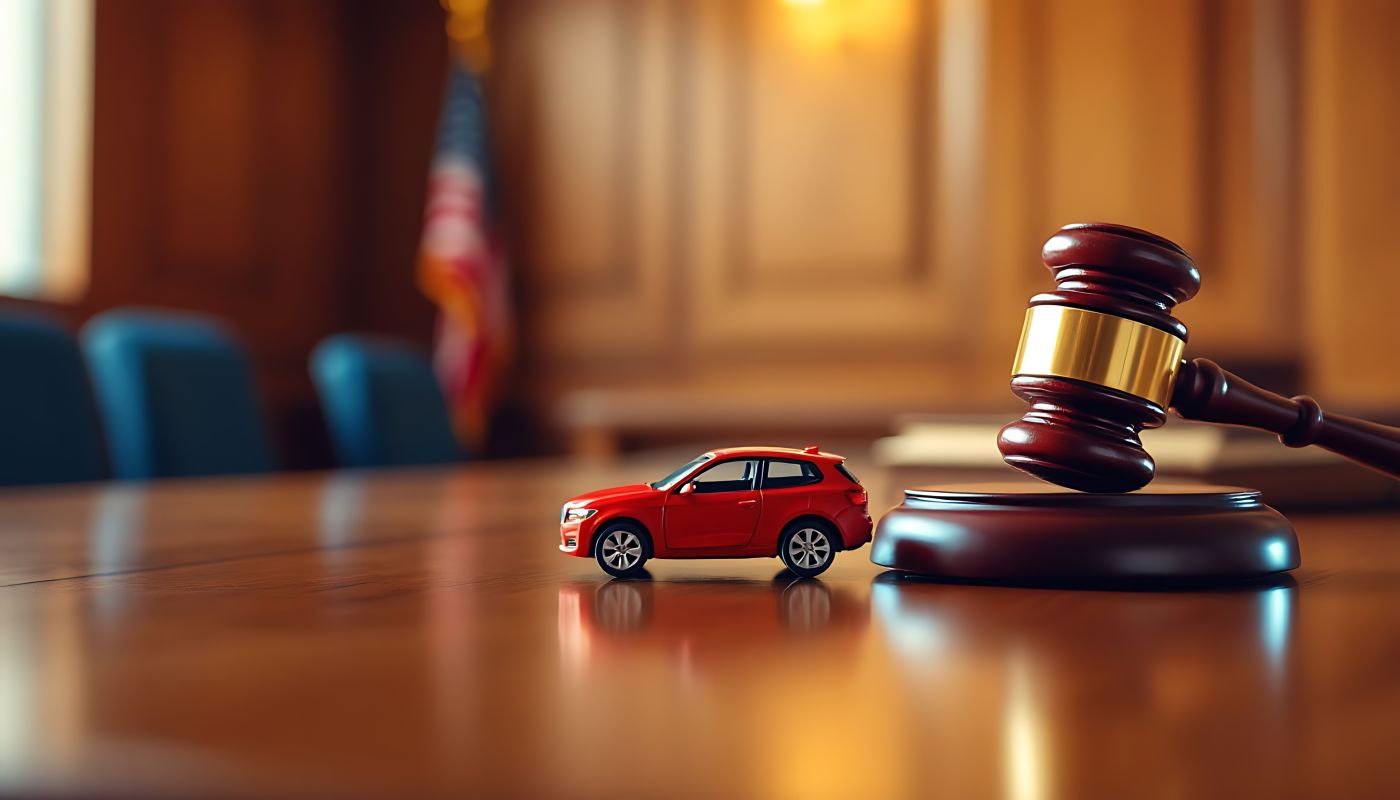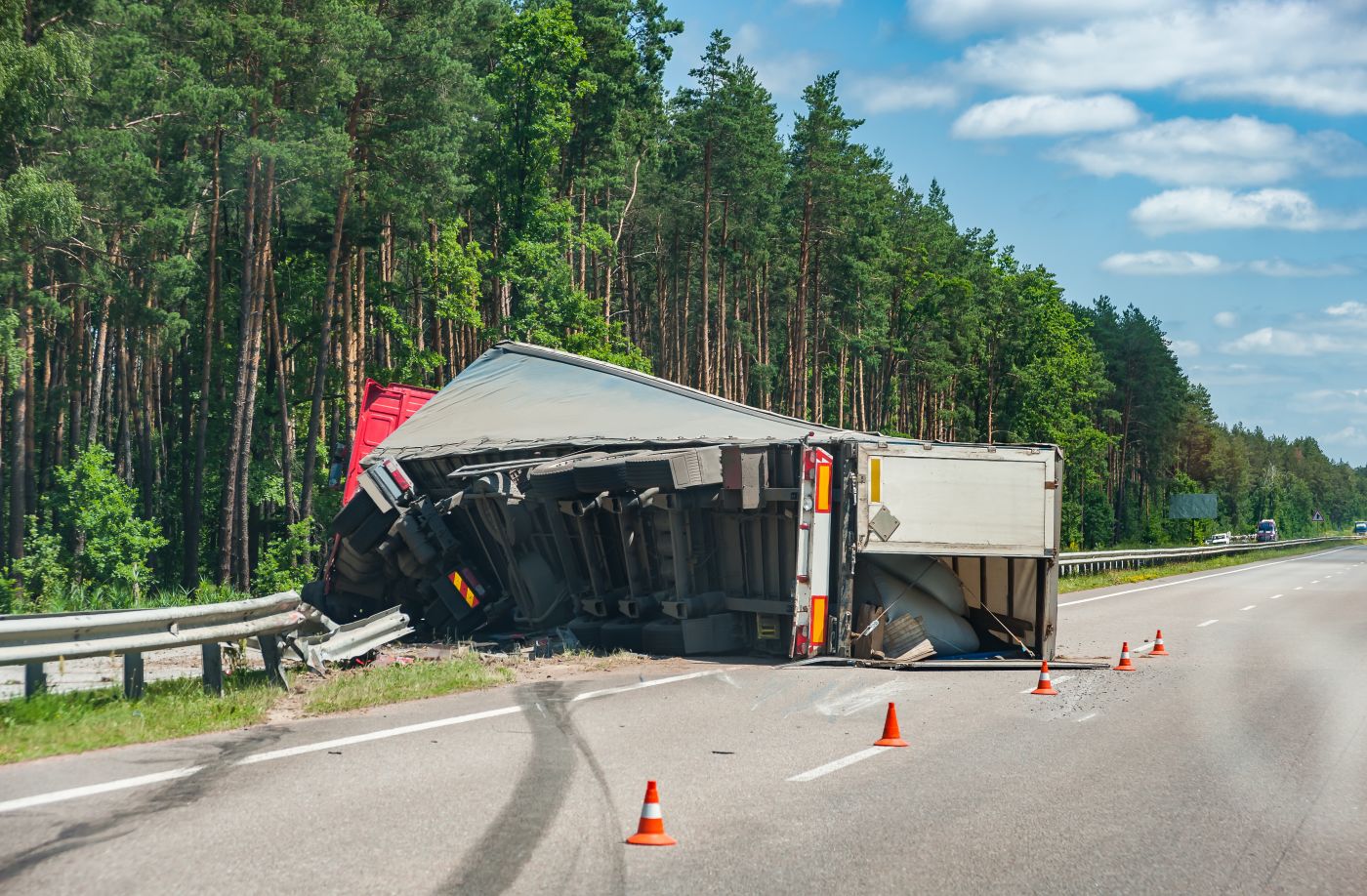
Accidents can be jarring, both physically and emotionally. When the other party involved is a government-owned vehicle, the situation can feel even more overwhelming. You might wonder about liability, claims, and your rights after the collision.
It’s normal to feel uncertain about the next steps, but you don’t have to handle it alone.
At The Tourigny Law Firm, I’ve helped clients across Kansas City, Missouri, and surrounding areas in both Kansas and Missouri who faced these unique cases. My goal is to provide clarity, guidance, and advocacy so you can focus on recovery.
I recognize that dealing with a government agency can feel intimidating. Filing a claim against a city, county, or federal vehicle often involves additional procedures and strict deadlines.
That’s why having a knowledgeable motor vehicle accident attorney by your side can make a significant difference. I guide clients through the process while protecting their legal rights every step of the way. Reach out to me, Greg Tourigny, Attorney at Law, if you’ve been involved in such an incident.
Common Types of Government-Owned Vehicles
Government-owned vehicles can range widely in type and use, and understanding what you’re dealing with is important when handling a claim. While each case is unique, some common types include:
Police vehicles: Often involved in high-speed pursuits or emergency responses.
Fire trucks and emergency response vehicles: May be on their way to a call during an accident.
Public works and utility trucks: Used for road maintenance, water services, or electrical repairs.
Postal and delivery vehicles: Vehicles owned by federal agencies, such as the United States Postal Service.
Municipal or city-owned cars and vans: For use by city employees or inspectors.
These vehicles are usually operated by government employees, which means additional rules may apply when filing claims or seeking compensation. Even if the accident wasn’t your fault, proving liability may require a careful investigation and legal support.
Steps to Take After an Accident With a Government Vehicle
After an accident involving a government-owned vehicle, immediate action is crucial. These steps can help protect your rights and strengthen your claim:
Seek medical attention: Your health comes first. Even if injuries seem minor, documenting treatment helps your case.
Call law enforcement: A police report creates an official record of the incident. Be sure to note if a government vehicle was involved.
Document the scene: Take photos of vehicles, license plates, street signs, and any visible damage.
Gather witness information: Names and contact details of witnesses provide additional evidence.
Notify the government agency: Some agencies require prompt reporting within strict time limits.
Contact a motor vehicle accident attorney: Having legal guidance early can help avoid mistakes or missed deadlines.
Taking these steps doesn’t guarantee a favorable outcome, but it positions you well for pursuing compensation. A motor vehicle accident attorney can help you determine the proper reporting procedures for the specific agency involved.
Filing a Claim Against a Government Entity
Claims against government entities often differ from standard insurance claims. In most cases, you can’t simply file with an insurance company. Instead, you may need to:
Identify the responsible agency: City, county, state, or federal.
Follow notice requirements: Agencies often have specific forms and tight deadlines, sometimes as short as 30 days.
Document your damages: Medical bills, lost wages, and property damage must be itemized.
Submit a formal claim: Most agencies require written submissions detailing the accident and your damages.
Because procedural mistakes can result in denied claims, having a motor vehicle accident attorney is critical. They know the timelines and requirements for each type of government vehicle, helping to present a claim correctly and efficiently.
Liability Considerations
Proving liability in an accident involving a government-owned vehicle can be challenging. Government employees may have certain immunities or exceptions from standard civil liability, which means not every accident automatically results in compensation.
One important factor is the scope of employment—was the driver acting within the duties of their job at the time of the accident? Emergency situations also play a role, as certain vehicles, such as police cars or fire trucks, may have limited liability if they were responding to a call.
Establishing negligence is another critical consideration; to support a claim, it’s necessary to show that the driver was careless or reckless. Shared fault can also affect outcomes, as damages may be reduced if both parties contributed to the accident.
Despite these hurdles, I’ve successfully helped clients recover compensation when government vehicles caused injury or property damage. Because each case is unique, reviewing the details with a motor vehicle accident attorney is essential to understanding your options and pursuing a fair outcome.
Insurance and Compensation
Insurance policies for government-owned vehicles often differ from private coverage, which can make pursuing compensation more complicated.
Depending on the circumstances, recoverable damages may include medical expenses for both current and future treatment, property damage such as vehicle repairs or replacement, lost income due to time away from work, and compensation for pain and suffering, including emotional distress or diminished quality of life.
Recovery amounts can also be affected by the agency’s policies and statutory limits, which may restrict how much can be claimed.
Working with a motor vehicle accident attorney helps clarify what compensation is available and protects you from accepting an offer that’s lower than what you may be entitled to. Their guidance can make a significant difference in achieving fair compensation after an accident involving a government-owned vehicle.
Common Mistakes to Avoid
Many people unintentionally jeopardize their claims when dealing with government-owned vehicles. Avoid these mistakes:
Delaying medical treatment: Untreated injuries can hurt your credibility and recovery.
Failing to report promptly: Government agencies often have strict reporting deadlines.
Providing recorded statements without legal advice: Statements can be misinterpreted and used against you.
Accepting initial settlement offers too quickly: Early offers are often lower than what you may be entitled to.
Neglecting documentation: Photos, witness contacts, and police reports strengthen your case.
By working with a motor vehicle accident attorney, you reduce the risk of these errors and improve your chances of a fair outcome.
Common Injuries From Accidents With Government Vehicles
Accidents involving government-owned vehicles can result in a wide range of injuries, some of which may not appear immediately. Recognizing the potential severity of these injuries is important for your health and for building a strong case. Common injuries include:
Whiplash and neck injuries: Sudden impact can strain muscles, ligaments, and tendons.
Back injuries: Spinal compression or disc damage may occur even in low-speed collisions.
Head injuries: Concussions or traumatic brain injuries can result from impact or sudden jolt.
Broken bones and fractures: Limbs and ribs are often affected depending on the force of the collision.
Soft tissue injuries: Sprains, strains, and contusions can cause lingering pain and limit mobility.
Documenting all injuries with medical professionals is essential. A motor vehicle accident attorney can help assure that your medical records accurately reflect the impact of the accident, which is critical for compensation.
Investigations and Evidence Collection
Gathering evidence is a critical part of any claim involving a government-owned vehicle. These cases often require more detailed documentation than typical vehicle accidents. Key steps include:
Collecting police reports: Official records provide an impartial account of the incident.
Photographing the scene: Photos of the vehicles, road conditions, and traffic signals support your claim.
Recording witness statements: Eyewitness accounts can confirm details and clarify liability.
Preserving vehicle data: Government vehicles may have GPS or dashcam footage that can be requested.
Maintaining medical and repair records: Accurate documentation of injuries and property damage strengthens your case.
Working with a motor vehicle accident attorney early assures that evidence is collected correctly and within required timeframes. Proper documentation can significantly affect the outcome of your claim against a government agency.
Contact a Skilled Personal Injury Attorney Today
Accidents involving government-owned vehicles can feel overwhelming, but you don’t have to face them alone. With the guidance of an experienced personal injury attorney, you can pursue fair compensation while focusing on your recovery.
At The Tourigny Law Firm, I’ve helped clients across Kansas City, Missouri, and throughout Kansas and Missouri handle these challenging cases with confidence and care.
Let me help you take the first step toward recovery and peace of mind. Reach out to me, Greg Tourigny, Attorney at Law, today to discuss your case and protect your rights.



